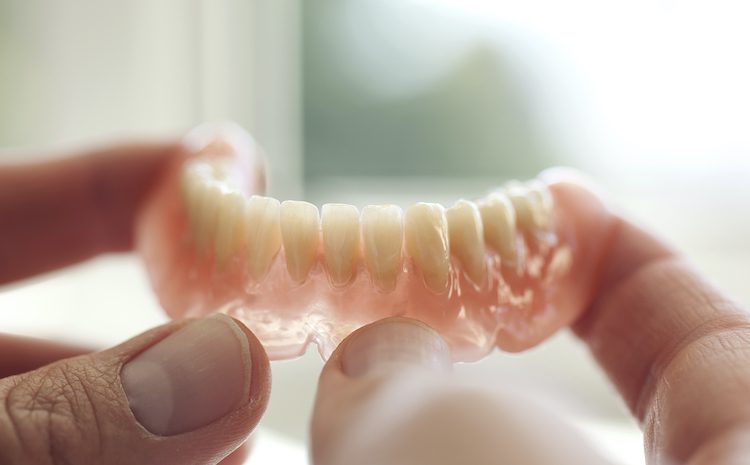Dentures are a significant investment in both your oral health and overall well-being. Whether you’re new to wearing them or have had them for years, taking proper care of your dentures can help them last longer, feel more comfortable, and function more effectively. Dentures, like natural teeth, require daily care and mindful habits to stay in good condition. With a few simple yet important routines, you can extend the life of your dental restoration and maintain your confident smile for years to come.
Clean Daily and Gently
Cleaning your dentures every day is one of the most effective ways to preserve their appearance and structural integrity. Just like natural teeth, dentures are exposed to food particles, plaque, and bacteria. These build-ups can lead to unpleasant odors and staining, and can even affect their fit over time. Use a soft-bristled brush specifically designed for dental work, and avoid using regular toothpaste, which can be too abrasive. Instead, opt for a non-abrasive denture cleanser or mild dish soap.
When cleaning your dentures, always handle them over a soft surface or a sink filled with water. Dentures can break if dropped onto a hard surface. Gently brush all surfaces of your denture, paying special attention to any grooves or crevices where debris can hide. Rinse thoroughly to remove any cleaning residue before wearing them again.
Soak Overnight
Dentures need to stay moist to maintain their shape. Allowing them to dry out can cause warping, cracking, or shrinking, which may lead to discomfort or the need for adjustments. Soaking them in a denture solution or plain water overnight keeps them clean and helps preserve their fit and function.
It’s also important to follow the instructions provided with your specific type of denture cleanser. Some solutions are designed for short soaking times, while others are meant for overnight use. Using the wrong type of cleaner or failing to rinse your dentures thoroughly before placing them back in your mouth can lead to irritation of the gums or mouth lining.
Handle with Care
While dentures are made to withstand the rigors of chewing, they aren’t indestructible. Excessive force, bending, or accidental drops can lead to cracks, chips, or broken clasps. When removing or inserting your denture, do so gently and with clean, dry hands. Never use sharp tools to adjust them or force them into place.
Avoid using hot water when cleaning or soaking your dentures, as heat can cause them to warp. If you notice any changes in the fit, such as increased looseness or discomfort, don’t attempt to adjust them yourself. Instead, schedule a visit with your dentist or prosthodontist to ensure the issue is addressed professionally.
Maintain Good Oral Hygiene
Taking care of your mouth is just as important as taking care of your dentures. Clean your gums, tongue, and the roof of your mouth every day using a soft toothbrush or damp washcloth. This helps remove bacteria, stimulates circulation, and prevents infections or sores that could impact how well your denture fits.
Even if you wear full dentures, it’s essential to visit your dentist regularly. Your dentist will check for signs of gum disease, bone loss, or changes in the fit of your dentures that may require adjustments or relining. Ill-fitting dentures can lead to sore spots, difficulty eating or speaking, and long-term damage to the underlying tissues.
Avoid Harmful Habits
Habits like chewing ice, biting your nails, or using your dentures to open packaging can cause significant damage. Smoking and consuming excessive amounts of staining beverages like coffee or red wine can also discolor your dentures over time. Try to be mindful of how you use your dentures and avoid habits that may cause them unnecessary wear or damage.
Denture Care in Leland, NC
At Waterford Family & Cosmetic Dentistry, we understand the importance of a complete bite. If you have extensive tooth loss or need multiple extractions, dentures could help restore your smile. Contact our office today to schedule a consultation and learn more about your restorative dentistry treatment options.

